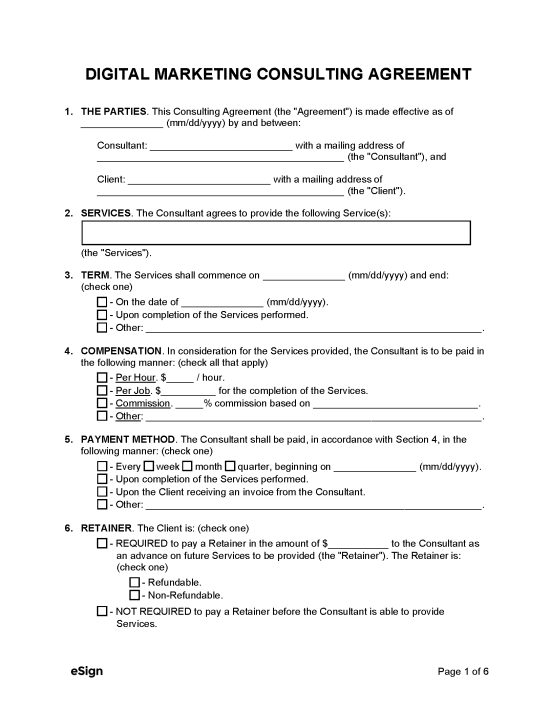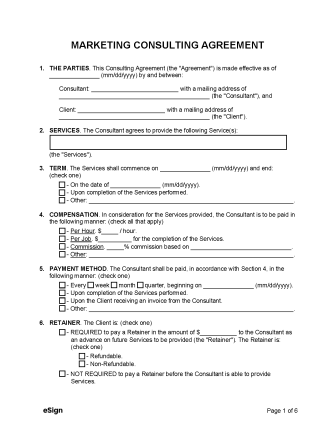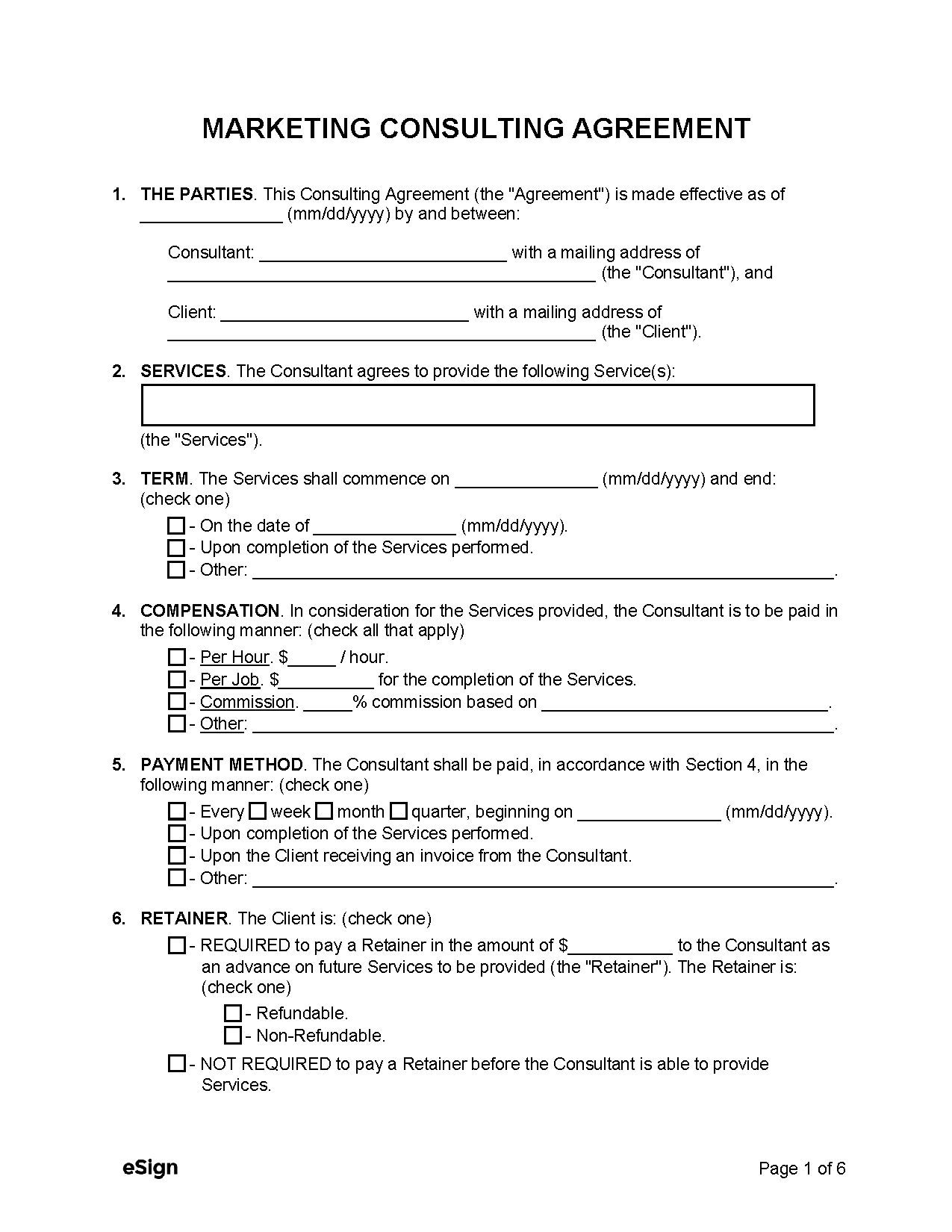Digital Marketing
 Digital Marketing Consulting Agreement – This form can be used when a client and a digital marketing consultant wish to work together.
Digital Marketing Consulting Agreement – This form can be used when a client and a digital marketing consultant wish to work together.
Download: PDF, Word (.docx), OpenDocument
What to Include
Services
The parties will have to discuss what types of services the consultant will provide for the client, and describe them in the agreement.
Term
The consultant and client must agree on a beginning and end date for the working relationship.
Compensation
The consultant will negotiate with the client about how much they charge for their services. This could be hourly, per task, on a commission-type basis, or another method agreed to by the parties.
Retainer
In some cases, consultants are kept on retainer, meaning the client agrees to pay a set amount of money upfront for future consulting services.
Independent Contractor Status
This provision confirms that the contract does not create an employer-employee relationship, and the consultant is free to perform their services as they see fit.
Confidentiality
The consultant may learn some of the client’s proprietary information, and they must agree not to disclose any of this information unless directed to do so by the client.
Sample
Download: PDF, Word (.docx), OpenDocument
MARKETING CONSULTING AGREEMENT
This Agreement is made between [CLIENT NAME] (the “Client”) and [MARKETING CONSULTANT NAME] (the “Consultant”).
1. SERVICES. The Consultant shall provide the following marketing consulting services: [DESCRIBE SERVICES] (the “Services”).
2. RETAINER. The Client shall pay the Consultant a flat retainer fee of $[AMOUNT] as an advance on future Services to be provided (the “Retainer”).
3. FEES AND PAYMENT. The Client shall pay the Consultant an hourly rate of $[RATE] for the Services provided. All payments shall be due within thirty (30) days of the date of invoice.
4. TERM AND TERMINATION. The term of this Agreement shall begin on [MM/DD/YYYY]. Either party may terminate this Agreement at any time by providing 30 days’ written notice.
5. INDEPENDENT CONTRACTOR STATUS. The Consultant, under the code of the Internal Revenue (IRS), is an independent contractor and is not an employee of the Client. The Consultant has sole control over how and when the Services will be performed and has the right to hire subcontractors or use employees without the Client hiring, supervising, or paying assistants to help the Consultant. The Client will not provide training, uniforms, or supervision of Consultant’s personnel, nor require full-time commitment for the Services.
6. CONFIDENTIALITY. The Consultant agrees to keep confidential all personal and financial information provided by the Client or acquired in the course of providing the Services.
7. LIABILITY. INDEMNIFICATION. The Consultant shall release, defend, indemnify, and hold harmless the Client and its officers, agents, and employees from all suits, actions, or claims brought on account of any injuries, damage, or loss received or sustained by any person, persons, or property, arising out of services provided under this Agreement or by Consultant’s failure to perform or comply with any requirements of this Agreement.
8. ENTIRE AGREEMENT. This Agreement contains the entire understanding between the parties and supersedes all prior agreements and understandings, whether written or oral.
IN WITNESS WHEREOF, the parties have executed this Agreement as of the date written below.
Client Signature: _______________ Date: [MM/DD/YYYY]
[CLIENT NAME]
Marketing Consultant Signature: _______________ Date: [MM/DD/YYYY]
[MARKETING CONSULTANT NAME]

